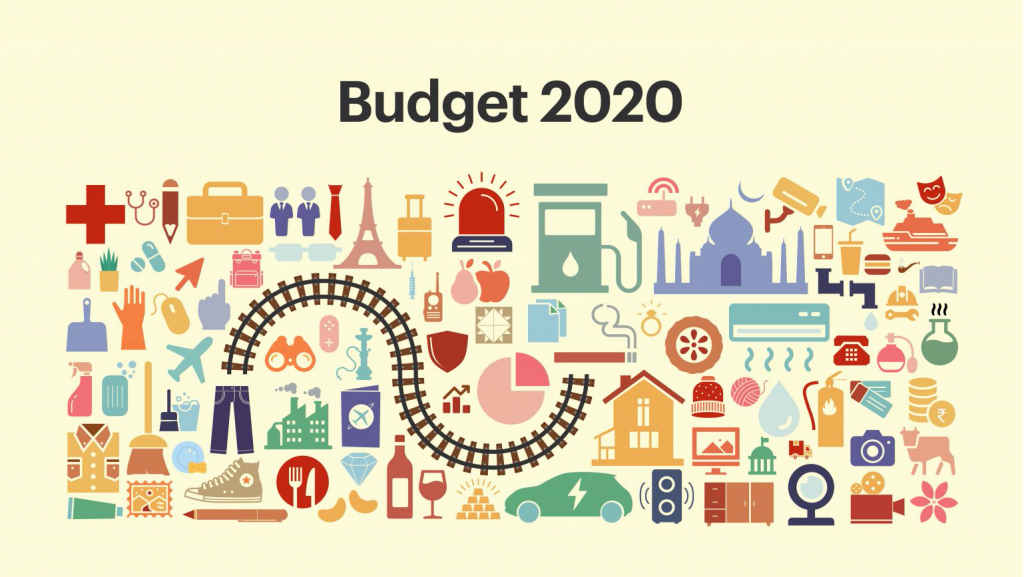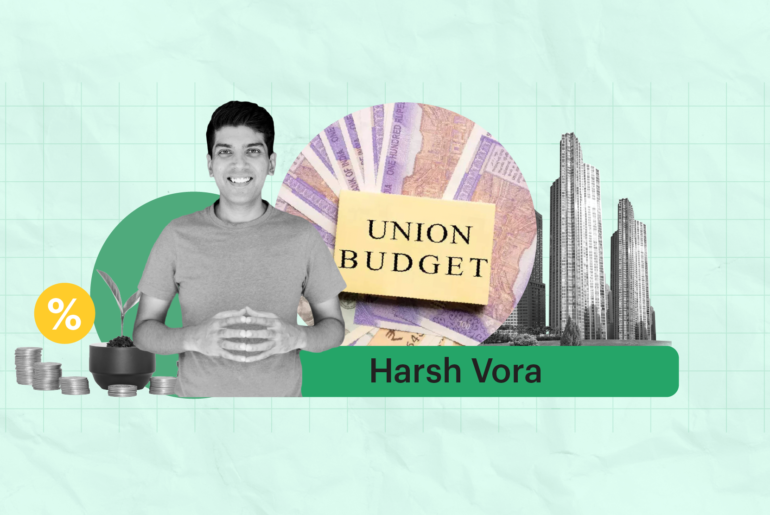Last Updated on Apr 6, 2021 by Manonmayi
Amid a slowing down economy, the Budget 2020 was expected to boost consumption and help India get back on track. However, the impact that the Budget proposals will have on you as a consumer, investor, and taxpayer is dearer to you. After all, the question here is about your hard-earned money.
To help you decode the impact of Budget 2020 on you, we have compiled hand-picked proposals, which if approved, will define your finances this year.
Consumers,
shell out more money for these items may get costlier:
Table of Contents
Healthy eating and healthcare are supposed to be affordable, but again, they may not
The importance of eating healthy food and availing quality treatment cannot be emphasised enough. But with a proposal to increase the customs duty on certain imported healthy food items and healthcare equipment, your expenses quota for these heads will certainly need an upgrade. If you are a regular consumer of imported dairy products such as ghee, butter, cheese, edible oils, peanut butter, whey, maize, preserved potato, dietary soya fibre, and shelled walnuts, you may have no chill now.
Speaking of healthcare, imported equipment including blood pressure and X-Ray machine will now attract a health cess, the incidence of which will be transferred to you even if you want to get a simple blood pressure check done.
Your tobacco stress-buster may intensify your stress
It is no secret that cigarettes have a dual-impact on the smoker. For one, smoking drains your wallet. Next, it aggravates health risks. When subtle ways of curbing tobacco usage didn’t work, the government introduced measures that were more visible and impactful. Like now, the government has proposed to increase the excise duty on tobacco products including cigarettes, hookah, tobacco extracts and essence, and chewing tobacco too.
Now if you feel an urge to smoke, you have no choice but to pay more for the sticks. Notably, the excise duties and compensation cess on cigarettes have only headed north since FY2012, and the rise has been over a whopping 202%! Looking at the trend, you wouldn’t have expected anything else in the matter. Therefore, it is your call to continue using tobacco or drop it already!
Making a style statement via your footwear, furniture, and kitchenware may demand more
As per the Budget, international brands of footwear and furniture will attract an inflated customs duty of and add to your expenses. So be it your wardrobe, home or office, if keeping things aesthetically appealing is a priority for you, then be ready to provide for additional expenses when you shop for footwear, kitchenware, and furniture.
Further, kitchenware made of China ceramic, porcelain, clay, steel, iron, and copper will attract customs duty of 20% (double of what it was). What’s more, if you are a lover of old-school things and want to install that wall fan in your home, you are in for a ride. With customs duty on this cooling equipment hiked to 20%, you might want to rethink your finances or look for another alternative to the fan.
The government took this step to encourage domestic production of the listed goods. Remember Make In India? Yes, they want to promote it. Amidst these developments, the only way to keep your wallet from draining is to shift your gaze to all things local. Go local maybe?
save more under these heads as these may cost less
You can still buy these food items without burning a hole in your pocket
Well, don’t sigh already. With customs duty to be withdrawn on certain food items, you are in for a treat. Now you will pay less for raw sugar, skimmed milk, Tuna bait, agro-animal based products, soya protein and soya fibre.
Imported sports equipment and goods will be cheaper so you can focus on being fit
The government has now proposed to slash the customs duty on imported sports goods or equipment. So, if you think you have sports-man or -woman in your household, you can now encourage them to chase their dreams without draining your pocket. Also, spare some time for your fitness already!
Investors and taxpayers,
look out for these developments
Plan equity investments well; DDT in the hands of companies is abolished
The abolition of the Dividend Distribution Tax (DDT) in the hands of the companies may be good news for corporates, but not for retail investors like you. Post Budget, companies will not pay tax on the dividend they distribute but you will pay tax on the dividend income that you receive. Shifting the DDT in the hands of recipients, the government says, will encourage low-income earners to consider investing in capital markets and make some gains.
Good news is that you will pay DDT at the rate applicable to your income slab and not a fixed rate. This would especially be favourable to low-income earners. Also, will the powers-to-be at dividend-paying companies even want to sanction dividends now? Maybe we’ll see larger figures in the Retained Earnings row!
Choose between the old and the new income tax regime wisely
The Finance Minister also announced a new tax regime, which will have 6 tax slabs and some benefits gone.
Here’s the current tax slab:
| Income bracket | Tax rate |
| Up to Rs 2,50,000 | Nil |
| Rs 2,50,001 to Rs 5,00,000 | 5% |
| Rs 5,00,001 to Rs 10,00,000 | 20% |
| Rs 10,00,001 and above | 30% |
Here is what the Budget 2020 proposed as an option:
| Income bracket | Tax rate |
| Up to Rs 2,50,000 | Nil |
| Rs 2,50,001 to Rs 5,00,000 | 5% |
| Rs 5,00,001 to Rs 7,50,000 | 10% |
| Rs 7,50,001 to Rs 10,00,000 | 15% |
| Rs 10,00,001 to Rs 12,50,000 | 20% |
| Rs 12,50,001 to Rs 15,00,000 | 25% |
| Above Rs 15,00,000 | 30% |
Fortunately or unfortunately, you will have a choice to ascertain your tax either under the old or the new tax regime. While the government said the new regime would make calculating tax easy, it doesn’t seem so. Given an option in the complex matter of income tax, things might only get difficult. To add to this, the Budget also proposes to remove ~70 of the existing 100 income tax exemptions and deductions under chapter VI-A. Simplifying the tax slabs is all well-and-good, but removing 70% of exemptions? Take out your calculators!
Should you choose to calculate tax based on the new regime, you will have to forgo exemptions and deductions. The benefits you are required to give up include the standard deduction of Rs 50,000, waiver on tuition fee of up to Rs 1.5 lakh paid for children, insurance premium, and provident fund contribution. So, take your time and use your calculators to see which tax regime is beneficial for you.
Government to divest a part of its stake in LIC by issuing IPOs, so you can have better control over your savings
During the Budget 2020 speech, the finance minister also proposed to sell 10% of government stake in Life Insurance Corporation (LIC) by issuing Initial Public Offer (IPO). An insurance behemoth, LIC plays a critical role in the financial health of the country by lending funds to the government in times of need. LIC holds a stake in public sector banks, has rescued weak companies by buying them and has invested in several government initiatives for the betterment of the economy.
But when the insurer lends money or buys stake in a needy organisation, it doesn’t use government funds. So where does the money come from? It comes from the premium that policyholders like you pay. Once LIC is divested, the common man will indirectly gain control of how their hard-earned savings are utilised. Also, listing will demand LIC to offer greater accountability and transparency to its policyholders and investors.
Prerequisite tax on certain employer’s contributions
The Union Budget 2020 proposes to tax several contributions as perquisites. For starters, any contribution in excess of Rs 7.5 lakh made by the employer towards an employee’s recognized provident fund, approved superannuation fund or notified pension would be taxable in the hands of the employee. In addition, the return in excess of Rs 7.5 lakh added to such a contribution will also be treated as a taxable perquisite. So, watch out for the contribution that your employer makes towards your EPF, NPS, and other government schemes.
Now that you have the Budget decoded for you, start planning your finances smartly.







